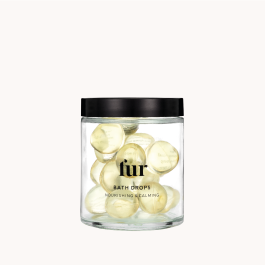How stress can affect your menstrual cycle
Currently, stress is something everyone talks about and a lot of people suffer from it. Cycle looks at how these stressful times can influence your cycle.
The stress hormone cortisol
For most people the days leading up to their period is a time where emotions are 10x more intense than usual. We all know that stress influences the body, and most of the time it’s not in a positive way. The culprit is the hormone cortisol aka the stress hormone. Cortisol raises the pain threshold, speeds up our reaction time and makes us ready to fight. A long, long time ago this would've come in handy, because we had to fight bears or rival tribes, but nowadays we’re safer than ever so we don’t really need it anymore.
Your body goes into survival mode
Dangerous situations are now replaced by stressful situations - think of trauma, grief, sadness, but also anxiety. Unfortunately, our body doesn't know the difference between the stress signals and actual danger, and so it’ll still start producing cortisol. This causes your body to go into survival mode. When your body goes into survival mode, all processes in your body that are not necessary for survival are put on the back burner. And one of those is your ovulation.
The increased production of cortisol also disrupts your menstrual cycle in another big way, and here’s how. In the second half of your cycle, your body produces progesterone to keep the hormone levels in your body balanced. However, cortisol is made from progesterone and when there’s a lot of stress, your body uses the progesterone that’s meant for a balanced cycle and turns it into cortisol. It basically snatches the progesterone away because it prioritizes survival over a balanced cycle, but this is done for no real reason because your body is reading the ‘danger’ signals all wrong.
The result: a disrupted cycle. And you can notice when your cycle is disrupted in a lot of ways. Some experience:
heavier menstrual pain,
more blood loss than usual
bleeding for more days.
Your cycle might get shorter or longer, which can result in more periods because of stress. Worst case scenario, sometimes your period stays away for months on end.
In short, a whole list of symptoms with one common denominator: it makes you want to crawl in bed and hide from everything and everyone. Especially because research has shown that it’s all connected to each other. When you have a delayed ovulation, you’re often on your period for a longer period of time and you most likely lose more blood as well. And that’s not all, because now the beginning of your next cycle is also delayed and you’re stuck in this loop without really knowing when your period shows up again...Thanks for nothing, cortisol.
We often don’t even realize we’re stressed
We already have to deal with enough unpredictable and stressful factors in our life, so how do we deal with these annoying menstrual problems? Well, the answer is to try and lower the amount of cortisol in our body. To stop the release of this hormone, our body must feel like it’s no longer under attack. And that’s not as easy as it sounds, because we often don’t realize we’re stressed anymore. Unfortunately, being stressed is kind of the new normal now in our current society. Still, it could be rewarding to pay close attention to your cycle in the future. If you’ve noticed that your PMS symptoms have gotten worse lately, or that your cycle has changed in one way or another, it may be time to seriously think about the level of stress in your life. And perhaps maybe even do something about it, if that’s possible.
Eating healthy, drinking lots of water, no alcohol, plenty of sleep and exercise are all things that could help you keep your stress level in check. But it’s also important to relax and do nothing on a regular basis. Sit your ass down on the couch, drink a nice cup of tea and let yourself get lost in a nice daydream. Does the stress or psychological pressure disappear? Then your period will usually be fine as well, so don’t stress too much about it! However, if your menstruation is gone for a period longer than six months, it might be a good idea to go see your GP.




























